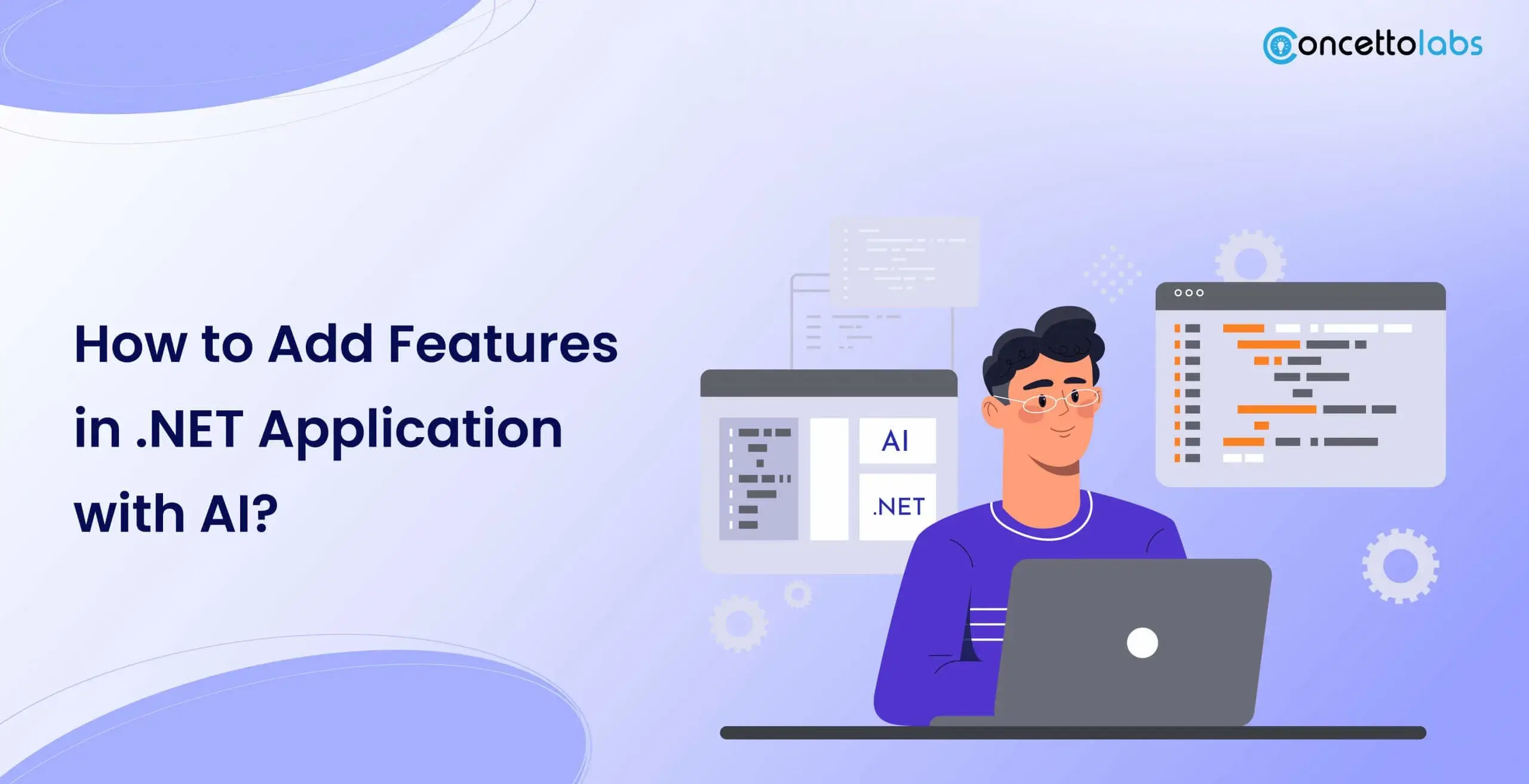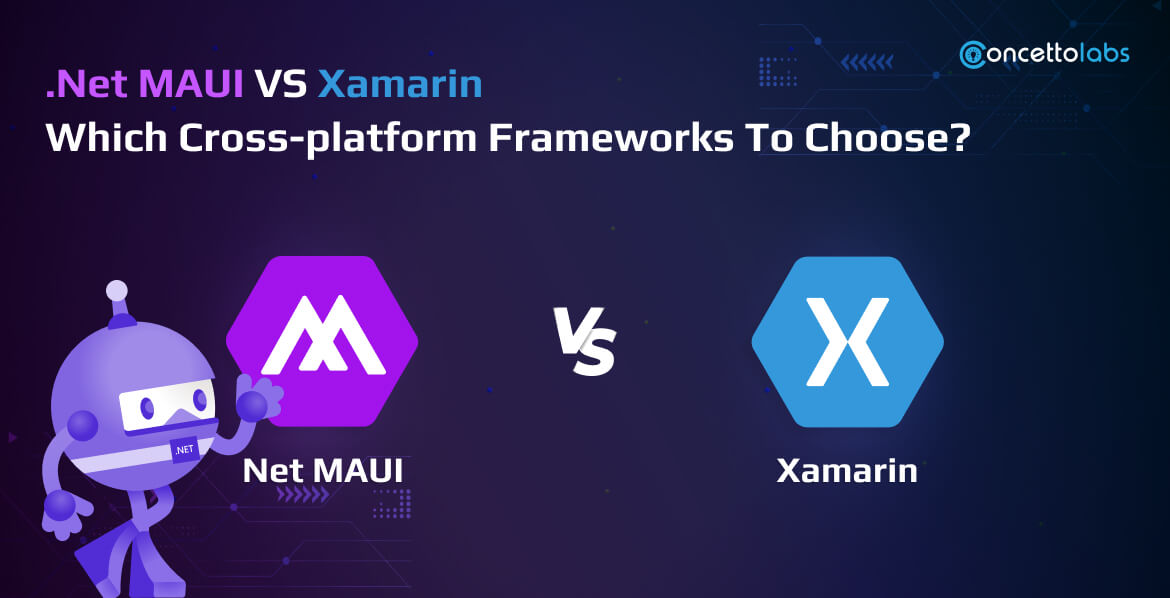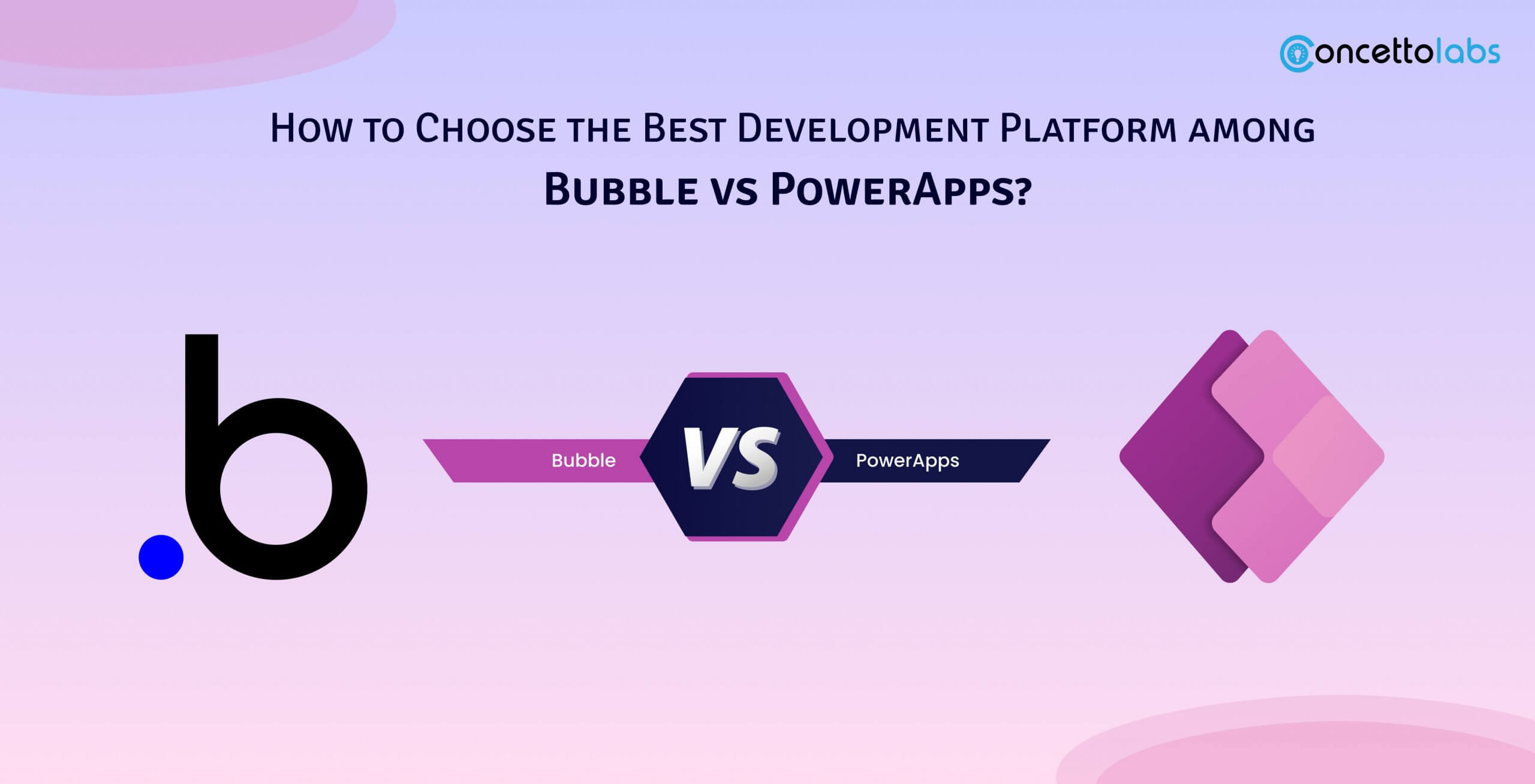
Various enterprises depend on legacy software systems to drive their operations. They operate core business processes, drive financial systems, and sustain mission-critical processes. But with businesses becoming more heavily dependent on automation, predictive analytics, and smart decision-making, older applications that were developed using traditional .NET frameworks start revealing their shortcomings, this is where the use of .NET Application with AI increases.
Nowadays, organizations have started looking into .NET legacy modernization with AI to stay competitive; this takes the current legacy systems to the next level, both in terms of the lifespan of the systems and in terms of providing them with advanced features.
This blog goes far and wide into how businesses can effectively incorporate AI in .NET legacy systems, the steps to take to facilitate the seamless adoption, and why AI modernizing .NET with intelligence is not only desirable but necessary.
Understanding .NET Legacy Modernization with AI
Modernization of legacy systems through AI is a long-term strategic project that converts the old systems to smart and future-oriented systems without the need to abandon the foundation. In the case of enterprises, it implies saving the value of years of development and the option of modern capabilities to fuel growth and innovation.
- It begins with the analysis of the existing .NET architecture to identify those touchpoints where AI-ready exists and where AI can be optimally used to enhance business value, e.g., predictive analytics, natural language processing, or process automation.
- When found, critical components are re-engineered to incorporate modern APIs, machine learning models, and cloud-native services, and offer scalability that is seamless and supported with improved performance.
- ASP.NET Core development is critical because it provides the opportunity to migrate to a flexible, modular path. This makes sure that legacy systems are made more flexible and responsive to changing market demands and minimizes the overhead during operations.
- The resultant AI algorithms are then integrated into processes to provide intelligent, context-adjusted applications that dynamically react to user interaction and real-time data.
AI for legacy .NET applications prevents organizations from the expensive and risky costs of total system rebuilds. Rather, they open up quantifiable ROI on both the lifespan of their current software and on their competitive advantage due to intelligent automation and improved decision-making.
Key Areas Where AI Enhances Legacy .NET Applications

1. Business Intelligence and Predictive Insights
Outdated reporting systems usually deliver only a one-dimensional picture of past data. In AI .NET legacy systems, organizations are able to use AI to identify trends, evaluate risks, and predict opportunities in order to implement predictive models.
Trusted firms such as Concetto Labs assist companies in discovering actionable patterns, predicting future opportunities, and evaluating possible risks on a real-time basis. This enables leaders to take proactive, information-based decisions that enhance profitability and positioning.
2. Customer Engagement
The old .NET systems are not always fast enough to meet the real-time needs of customers by delivering personalized service faster. The incorporation of AI-powered chatbots or voice assistants increases the level of user satisfaction. Enabling AI within .NET applications helps companies respond to queries in real time, guide recommendations, and personalize retention rates.
Through ecosystem modernization of your .NET, our customized AI solutions ensure you establish better customer relationships and foster long-term loyalty in a rapidly changing digital marketplace.
3. Automation of Workflows
Legacy .NET applications are usually slowed down by manual, repetitive tasks like invoice approvals, claims validation, or document handling. Machine learning can be used to automate these daily operations. .NET modernization AI solutions automate work and minimize the number of human errors.
This boosts the rate of turnaround time, lowers costs, and improves the productivity of firms. Smarter, faster, and efficient processes that are industry-specifically designed can be achieved by organizations.
4. Fraud Detection and Security
The old security mechanisms in legacy .NET systems can be exposed to fraud and attackers. Companies that implement AI Legacy .NET systems will be able to stop fraud incidents or detect system breaches early in the process by combining anomaly detection and pattern recognition.
It fundamentally identifies abnormal behavior (early), reduces risks and adherence to the security requirements in modern times. In the case of Legacy .NET systems, organizations not only eliminate fraud but also ensure customer trust and protect their reputation by using AI-enhanced security systems.
5. Intelligent Search and Knowledge Management
Old applications do not have intelligent search capabilities. Using AI-powered natural language processing, organizations are able to develop search systems with a personalized understanding of context and intent.
AI developers such as Concetto Labs update your .NET applications with an artificial intelligence-based natural language processing (NLP) that can be context-aware, intent-aware, and user-behaviour aware. This smart search feature makes information search within documents, knowledge bases, and customer portals quicker and more precise.
Steps to Add AI Features into the Legacy .NET Software
The introduction of AI into the systems which were running on the legacy of .NET has to be followed by the appropriate plan of action, which could contribute to the easy transition process to the world of modernization and business value.
Step 1: Assess the System – Begin the process with an evaluation of the current architecture, as well as codebase and data infrastructure. Also, identify the most efficient areas to be managed by AI, from automation and predictive analytics to personalization.
Step 2: Build Business Use Cases – Have quantifiable, definable aims of AI integration. There are those applications that target strategic priorities such as predictive maintenance, chatbots to assist customers, or recommendation engines to assist users.
Step 3: Select the Right AI tools – Select the models and platforms that can be used with the .NET apps to create the model, including ML.NET to build it in-house, Tensorflow.NET to use the deep learning, or cloud AI to speed up the process, like the Azure Cognitive Services, AWS AI, and Google AI.
Step 4: Migrate with ASP.NET Core – Migrations of the most notable sections of the legacy .NET Framework to ASP.NET Core development improve the performance, scalability, and integration of the cross-platform, and its ability to become cloud-ready.
Step 5: Build AI Modules – Seek assistance on the part of professional AI implementers in order to build bespoke machine learning-based frameworks, incorporate natural language processing (NLP) or use the current API to fasten the undertaking.
Step 6: Test, Deploy, and Monitor – Add AI solutions step-by-step, and integrate with the current systems. Performance evaluation, detection of any drift, and making changes are also to be considered to enhance efficiency and maximization of long-term value of the business.
Transforming Legacy .NET Systems with AI
With predictive analytics to intelligent automation, AI with legacy .NET applications opens up transformative opportunities that static systems are just incapable of competing with. Also, .NET applications have always surpassed their non-intelligent counterparts. Through proper AI consulting services and expert implementation support, old systems can be transformed into intelligent, versatile ecosystems that are in line with new business requirements.
However, AI app development to modernize legacy applications does not come without challenges.
- One of the common problems that many enterprises face is missing or inconsistent records of data in older databases.
- Technical debt in monolithic architectures complicates integration, and the talent gap in AI and .NET expertise also remains persistent, making implementation a challenge.
In order to do it successfully, it is necessary not only to be innovative but also to use the right .NET software development services that can find the optimal balance between modernization as well as stability.
Future of AI in .NET Legacy Systems
The integration of AI and .NET is only starting. In the coming years, we will see:
- The use of AI in. NET applications are now becoming a norm in predictive insights, such that systems can predict performance problems, user behavior patterns, or system bottlenecks before they happen.
- Low-code AI integration eliminates the need for specialized developers, allowing business units to create and customize AI-enabled functionality with very little code.
- Generative AI is also improving the natural language interface of customer applications, radically simplifying the end-user interaction with legacy systems and improving engagement.
- AI-powered .NET that monitors systems and upgrades them automatically to make sure that they are proactive in their maintenance, and application pipelines are better fortified.
Companies that invest in an AI consulting approach and modernization today stand at the head of the digital economy of the future. A survey states that among enterprises, 86 percent are rapidly implementing AI, particularly generative AI, to hasten their mainframe modernization initiatives in 2024, with up to 225 percent ROI in a year.
Conclusion
The introduction of AI in .NET legacy systems is not an experiment anymore. Legacy modernization with AI in organizations that have adopted .NET gives them agility, intelligence, and a competitive advantage. Using the right combination of AI App Development. .NET AI integration, and professional services of .NET software development, companies will be able to modernize seamlessly without dumping their legacy investments.
With the help of professionals such as Concetto Labs, the business can find not only experienced .NET developers, but also a high-level AI solution that will meet the gaps between the past and the future needs. When you hire .NET Developers such as Conectto Labs, they are acquainted with services related to the development of software and seamless legacy .NET transformation.







 Indonesia
Indonesia
 Botswana
Botswana
 USA
USA
 Italy
Italy
 Panama
Panama




 USA
USA UK
UK Saudi Arabia
Saudi Arabia Norway
Norway India
India Australia
Australia